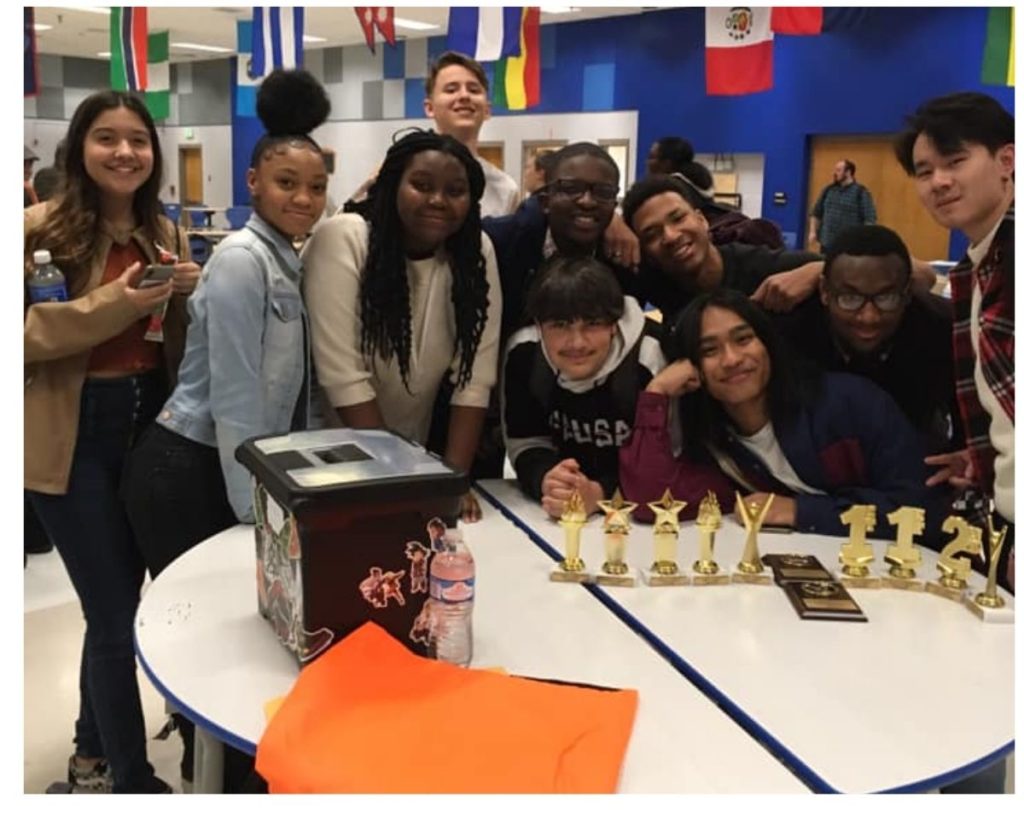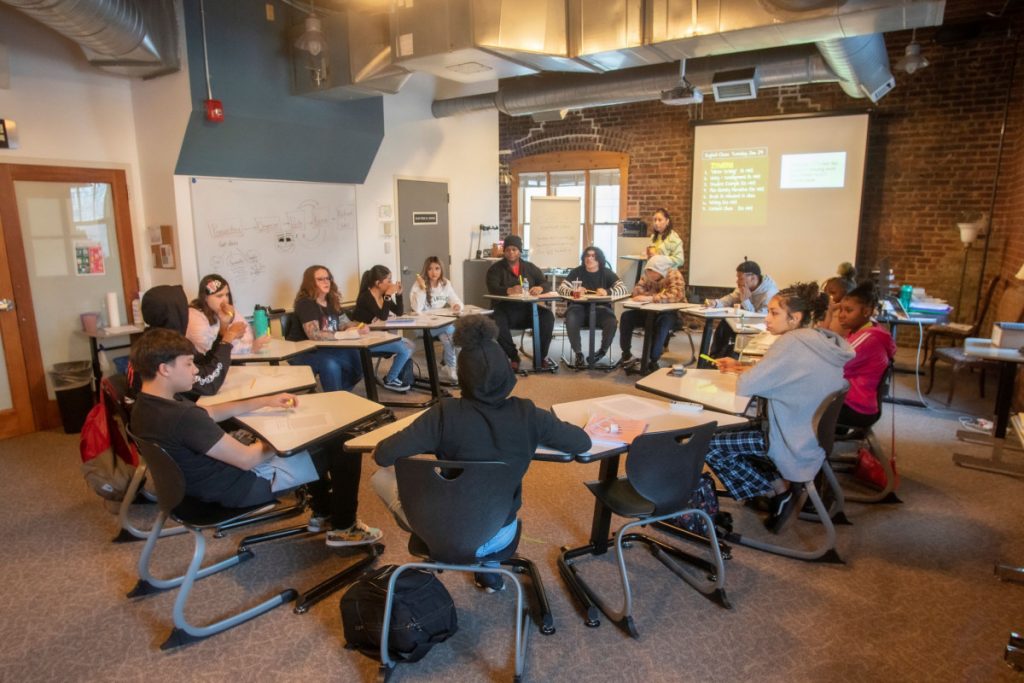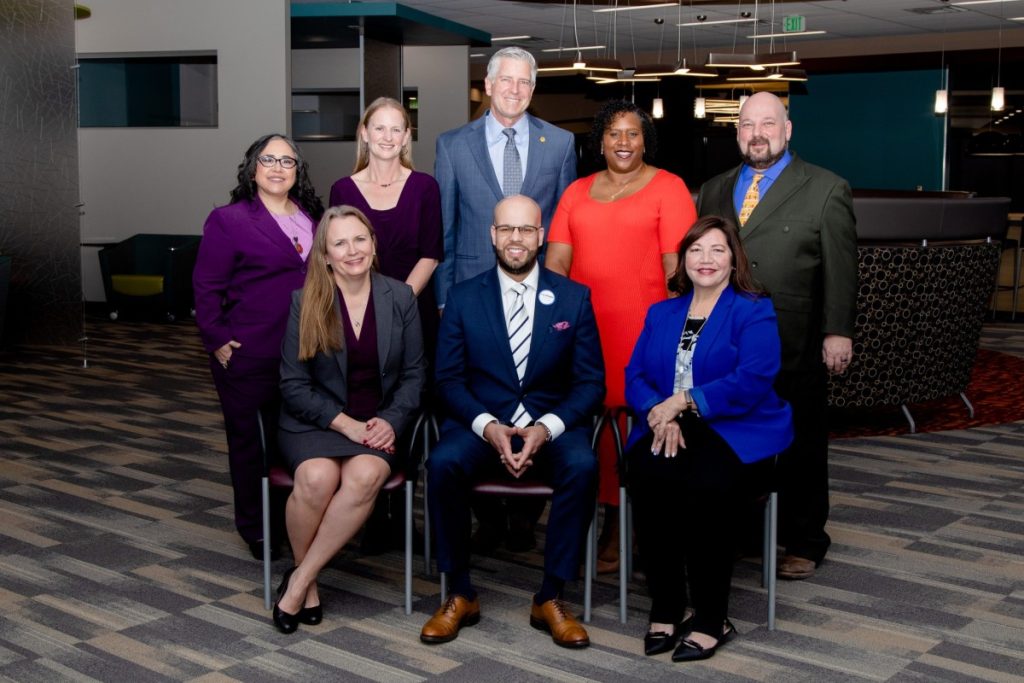Editor’s note: This article was written by Rachel Bruce, a debate coach and social studies teacher at Dr. Martin Luther King, Jr. Early College, and Morgan Kenworthy, who teaches 6th grade social studies.
By Rachel Bruce and Morgan Kenworthy
Our school has worked diligently over the years to build layers of learning about the life and legacy of its eponym, Dr. Martin Luther King, Jr.
As students progress from 6th through 12th grade, they study different aspects of Dr. King’s life and teachings. High schoolers in the International Relations class discuss Dr. King’s opposition to the Vietnam War, for example. With 2020 being such a tumultuous year, a quote of his which we came back to often was, “Our lives begin to end the day we become silent about things that matter.”
Our youngest students told us the mob riot at the Capitol this month was spurred by anger at Black people. The same week students saw the state of Georgia elect two Democrats to the U.S. Senate. They were in awe, “Black women got this done,” one said.
Last year, some students had studied the documentary All In, which chronicles voter suppression in the United States, “a problem that has corrupted our democracy from the very beginning.” Georgia’s Stacey Abrams’ focused and tireless work to end voter suppression is effective in helping students grasp the idea of self-advocacy. We’ve had powerful discussions about Abrams’ work, and envision her efforts will be integral in our American Government course work for the next decade.
The world isn’t necessarily going to give you a fair shake, we often say to kids, especially if you’re a person of color. So be advocates for yourself. Our students are keen to the dysfunction in government brought on by voter suppression and too much money in the system. And yet when they see Abrams and former President Barack Obama – people who look like them – say “change is possible, this system is worth saving, this system is worth fixing,” it carries extraordinary power.
When teaching the U.S. Constitution, we can’t just gloss over the deep flaws in our country’s founding. Our students made that clear last year when they challenged us to make transformational changes to our history curriculum. We have changed the order and approach to our teaching of the Constitution along with other subjects, starting now with focus on the Thirteenth, Fourteenth and Fifteenth Amendments. Over the course of two centuries, the Constitution gives an opportunity to expand suffrage. And there is this slow, grinding improvement in function.
Young women at DMLK led the “Know Justice, Know Peace” initiative to incorporate the contributions of Black, Indigenous, and Latino communities to the K-12 curriculum throughout Denver Public Schools. The Board of Education has committed to revising the curriculum over the next couple of years. It’s been exciting to see these students, some of whom are also on our debate team, feel genuinely empowered.
As we reviewed the election results last November, we discussed the challenges of counting votes in 50 states with 50 different ways of tabulating results. Students understood that some states weren’t able to count mail-in votes until after polls closed on Election Day. “That’s why those votes are coming in later,” we explained. “They weren’t able to count the votes any earlier.”
One student typed in the chat, “Trump hates complexity.”
We enjoy launching the study of geography with a quote from Obama: “The study of geography is about more than just memorizing places on a map. It’s about understanding the complexity of our world, appreciating the diversity of cultures that exists across continents. And in the end, it’s about using all that knowledge to help bridge divides and bring people together.”
“I miss him so much,” students will often say about President Obama. They felt a strong connection to him, and as time has passed, they have said how great a president he was. Citing his knowledge of the Constitution, his understanding of politics and what he knows about representation, the way he selected women and people of color for key cabinet and court appointments.
As challenging as the last year has been, we’re heartened that our students have had more questions about politics and current events than we’ve seen before in our careers. We suggest students go to the BBC News to make sense of things. As they see history unfold, it’s easier for them to grasp the consequences of staying silent about things that matter.
Images of recent history spark intense conversations in class. The most profound for our kids were the photos of children in cages at the border. There’s also the iconic Pete Souza photo of the young Black boy touching President’ Obama’s hair, and the photo of Obama mentoring young men of color and saying, “You matter, You count.”
Looking ahead to Inauguration Day, students are aware of the traditions the Obamas observed, the gracious goodbye to the Bush family in 2009, the warm greeting to the Trumps back in 2017.
This week they will see a woman of color, the first, take the vice presidential oath of office. They fear for her safety, especially as they expect her to be summoned often to break ties in the Senate, a place they now perceive as unsafe.
“I hope it’s boring,” one of them typed in the chat last week.




